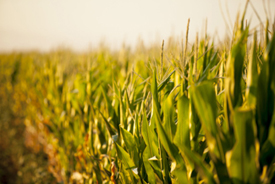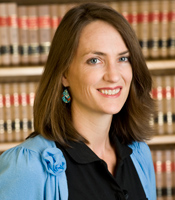 What does climate change hold for the Midwest’s future corn crops? And not just in terms of their yields, but also in terms of the nutrients that may run off from the fields? Today (Nov. 18) at noon in a free webinar, hear the results of a major study led by CFAES scientist Richard Moore. Learn more and register online.
What does climate change hold for the Midwest’s future corn crops? And not just in terms of their yields, but also in terms of the nutrients that may run off from the fields? Today (Nov. 18) at noon in a free webinar, hear the results of a major study led by CFAES scientist Richard Moore. Learn more and register online.
Month: November 2014
Nuts! Bumper acorn crop a risk to calves
https://www.youtube.com/watch?v=9dhOXhbYgsY
In the paraphrased words of The Little Rascals, “Don’t eat the acorns!” “Why?” “They can cause kidney failure!” In calves and young sheep. Ehhhhh!
Nov. 13: Climate change, international law and ‘The Wager of Our Generation’
 Ohio State Associate Professor Cinnamon Carlarne of the Michael E. Moritz College of Law presents “The Wager of Our Generation: Climate Change Beyond International Environmental Law” tomorrow, Nov. 13, in the autumn seminar series by CFAES’s School of Environment and Natural Resources. Carlarne is a leading expert on climate change law and policy. (Photo: Moritz College of Law.)
Ohio State Associate Professor Cinnamon Carlarne of the Michael E. Moritz College of Law presents “The Wager of Our Generation: Climate Change Beyond International Environmental Law” tomorrow, Nov. 13, in the autumn seminar series by CFAES’s School of Environment and Natural Resources. Carlarne is a leading expert on climate change law and policy. (Photo: Moritz College of Law.)
Dec. 3: Conference for farmers on no-till
 For a farmer, choosing not to till the soil can make it more fertile and keep it from eroding, the former a plus for food production, the latter a boon to water. On Dec. 3, CFAES experts will speak on science-tested ways to carry out the practice. Details here and here (PDF). (Photo: No-till soybeans, NRCS.)
For a farmer, choosing not to till the soil can make it more fertile and keep it from eroding, the former a plus for food production, the latter a boon to water. On Dec. 3, CFAES experts will speak on science-tested ways to carry out the practice. Details here and here (PDF). (Photo: No-till soybeans, NRCS.)
U.S., China reach ‘historic’ deal to cut carbon emissions
From yesterday’s (Nov. 11) New York Times:
“China and the United States made common cause on Wednesday against the threat of climate change, staking out an ambitious joint plan to curb carbon emissions as a way to spur nations around the world to make their own cuts in greenhouse gases.”
Read the story. CNN reported on the plan here, the BBC here, Business Insider (via Reuters) here and Fortune here.
In case you missed it
The Intergovernmental Panel on Climate Change recently released a new report summarizing the panel’s three massive climate change studies. “Human influence on the climate system is clear and growing, with impacts observed on all continents,” a press release about the report said. If left unchecked, climate change threatens “irreversible and dangerous impacts.”
IPCC Chair R.K. Pachauri of India, quoted in that press release, said:
“We have the means to limit climate change. The solutions are many and allow for continued economic and human development. All we need is the will to change, which we trust will be motivated by knowledge and an understanding of the science of climate change.”
Read the report (PDF).
Red clover, red clover, send clean water over
 There’s a lot to be said for cover crops, and a new guide says it. Co-written by CFAES experts, Midwest Cover Crops Field Guide shows the hows and whys of growing red clover (pictured with a guest), alfalfa and many others, including some new possibilities. Look inside here. Buy it here. Cover crops’ pros include protecting and improving both soil and water.
There’s a lot to be said for cover crops, and a new guide says it. Co-written by CFAES experts, Midwest Cover Crops Field Guide shows the hows and whys of growing red clover (pictured with a guest), alfalfa and many others, including some new possibilities. Look inside here. Buy it here. Cover crops’ pros include protecting and improving both soil and water.
Non-burning question: Leave me be?
 Is it better to rake your leaves or leave them alone? Discovery News recently talked to CFAES’s Joe Rimelspach, a turfgrass pathologist, to try to answer the question. (Photo: iStock.)
Is it better to rake your leaves or leave them alone? Discovery News recently talked to CFAES’s Joe Rimelspach, a turfgrass pathologist, to try to answer the question. (Photo: iStock.)
‘Stop Hunger Now’ for Thanksgiving
 On Nov. 24, three days before Thanksgiving, CFAES will host a Stop Hunger Now meal packaging event, and you’re invited to help. You can register to be a volunteer here, and you can donate to the event here. The goal is to raise $21,750 and package 75,000 meals (each meal costs only 29 cents). Stop Hunger Now is an international hunger relief agency that distributes food to people in vulnerable countries. The event, says its website, is a “fun, hands-on way to make a difference.” (Photo: Stop Hunger Now.)
On Nov. 24, three days before Thanksgiving, CFAES will host a Stop Hunger Now meal packaging event, and you’re invited to help. You can register to be a volunteer here, and you can donate to the event here. The goal is to raise $21,750 and package 75,000 meals (each meal costs only 29 cents). Stop Hunger Now is an international hunger relief agency that distributes food to people in vulnerable countries. The event, says its website, is a “fun, hands-on way to make a difference.” (Photo: Stop Hunger Now.)
Video series features soil health, ‘farmers who do things differently’
Healthy soils, as the saying goes, support healthy plants, healthy animals and healthy people. Healthy water, as it turns out, too. A new YouTube video series, whose contributors include experts from OSU Extension, CFAES’s statewide outreach arm, shows farmers how to achieve those soils, which form a foundation for sustainable agriculture. Soil microbes (3:09), cover crops and compaction (4:26) are some of the topics. Read more.